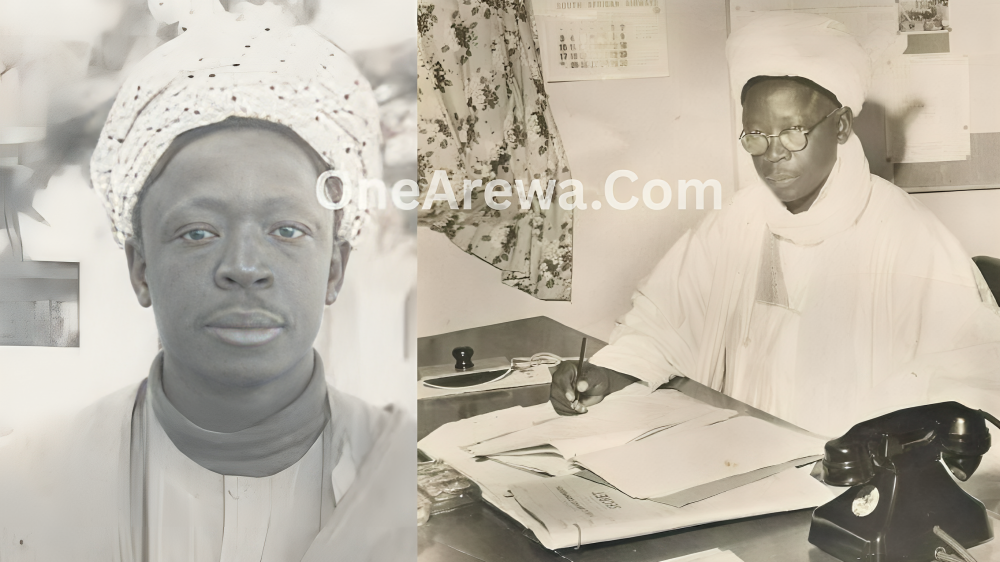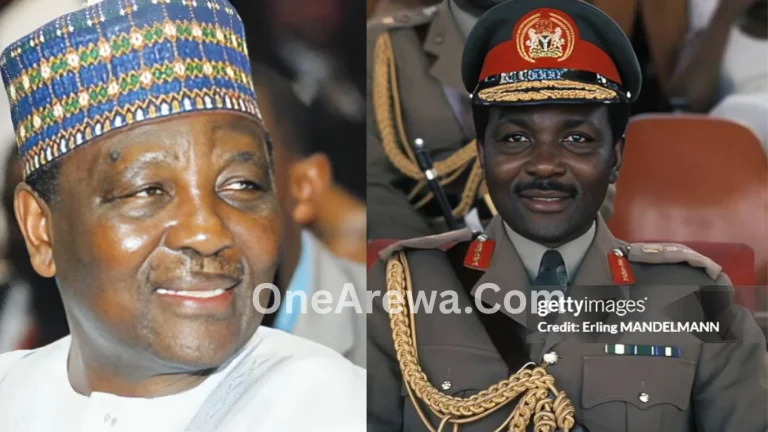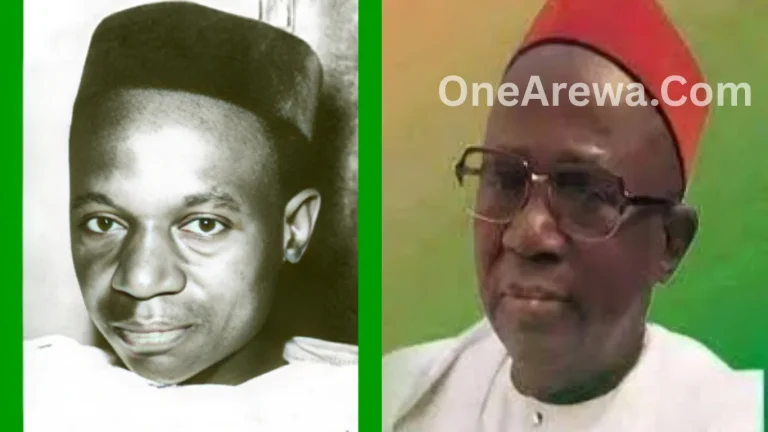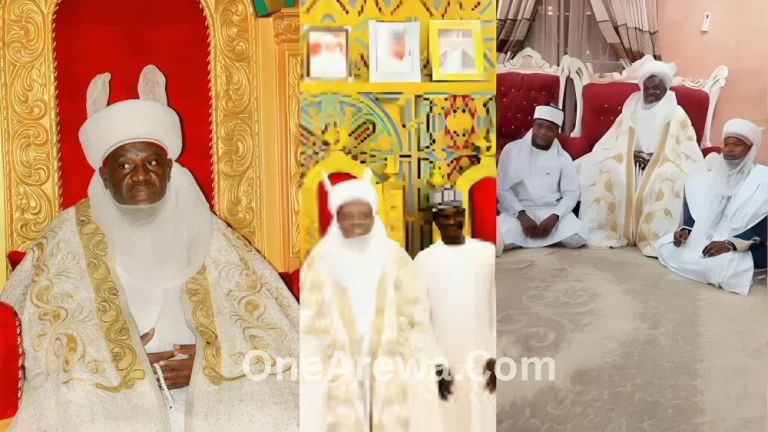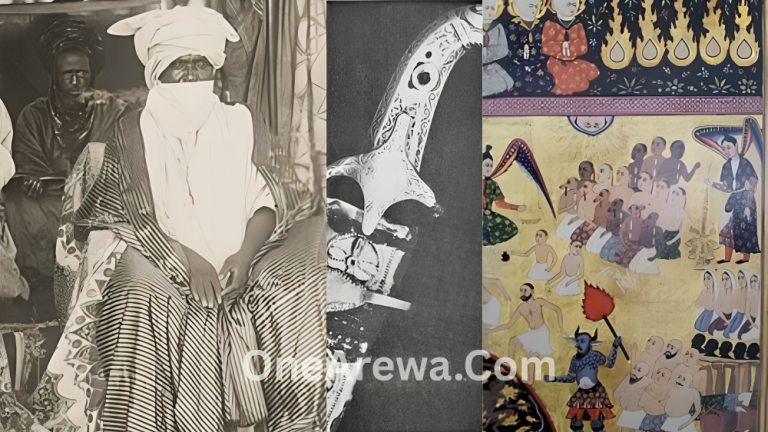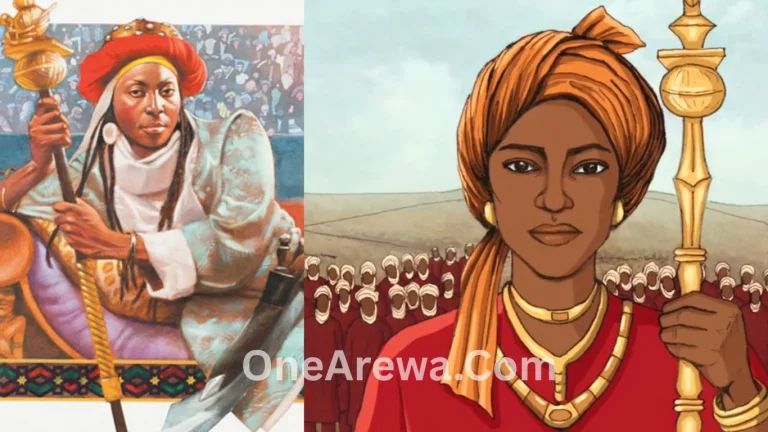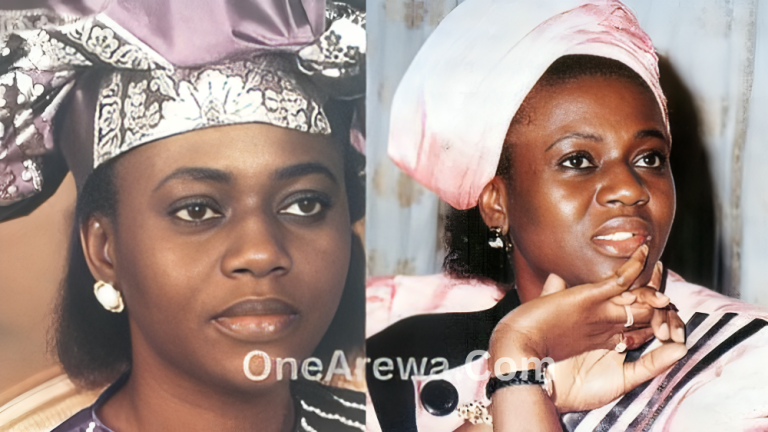Abubakar Imam (1911–1981): Northern Nigeria’s Pioneer Intellectual and Political Icon
Abubakar Imam (1911–1981): Northern Nigeria’s Pioneer Intellectual and Political Icon
Alhaji Abubakar Imam (1911–1981) was a prominent Nigerian writer, journalist, and politician, best known as the first Hausa editor of the newspaper Gaskiya Ta Fi Kwabo.
Born in Kagara and raised in Zaria, he came from a diverse background connected to Sokoto, Bornu, and Katsina.
He studied at Katsina College and later at the University of London. Imam gained fame in 1933 when his play Ruwan Bagaja won a literary competition.
He later co-founded the Gaskiya Corporation, which advanced Hausa literature and publishing in Northern Nigeria.
In politics, he helped build the Northern People’s Congress (NPC). Imam authored many influential Hausa books such as Magana Jari Ce, Ruwan Bagaja, and Tafiya Mabudin Ilmi, making him a pioneer of modern Hausa literature.
He was honored with several awards, including O.B.E., C.O.N., and an Honorary Doctorate, and his works remain part of school curriculums in Nigeria.
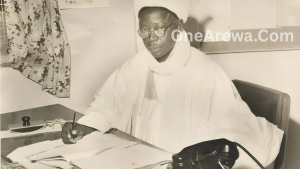
Abubakar Imam Wikipedia
| Category | Details |
|---|---|
| Full Name | Alhaji Abubakar Imam |
| Born | 1911 in Kagara, Niger State, Northern Nigeria |
| Died | 1981 |
| Nationality | Nigerian |
| Occupation | Writer, Journalist, Politician, Intellectual |
| Notable Works | – Magana Jari Ce– Ruwan Bagaja– Ikon Allah– Tafiya Mabudin Ilmi– Tarihin Annabi Kammalalle |
| Educational Background | – Katsina College– University of London’s Institute of Education |
| Career Highlights | – First Hausa editor of Gaskiya Ta Fi Kwabo– Key figure in Northern People’s Congress (NPC)– Co-founder of Gaskiya Corporation |
| Major Contributions | – Promoted Hausa literature and journalism– Advocate for education– Influential in Hausa intellectualism |
| Legacy | – Pioneer intellectual in Northern Nigeria– Major contributor to Hausa culture– Influential in education and journalism |
| Awards | – O.B.E. (Order of the British Empire)– C.O.N. (Commander of the Order of the Niger) |
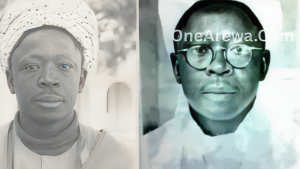
Abubakar Imam Family and Origins
Alhaji Abubakar Imam was born in 1911 in Kagara, a town in Niger State, Nigeria.
Though born in Kagara, his ancestral roots trace back to Northern Nigeria’s major Hausa-Fulani centers, including Sokoto, Bornu, and Katsina.
These connections gave him a rich cultural heritage rooted deeply in the Hausa-Islamic traditions of pre-colonial and colonial Nigeria.
His father was a respected Islamic scholar and cleric.
He came originally from Sokoto, a key spiritual and political center of the Hausa-Fulani Caliphate.
The father’s religious influence played a significant role in shaping Imam’s moral values, discipline, and deep interest in Islamic and secular knowledge.
Being a teacher of the Qur’an and Islamic law, he instilled in his children a sense of purpose and the importance of education.
Imam’s mother hailed from Katsina, another prominent city in Hausa history known for its centers of learning and leadership.
She was described as nurturing and intelligent, with a strong personality.
Her Katsina heritage introduced Imam to a slightly different perspective of Hausa culture and dialects, broadening his linguistic range from an early age.
Ethnicity: Hausa-Fulani
Languages: Grew up speaking Hausa, and later learned Arabic and English fluently.
Religious Upbringing: Islam was central to his early life and continued to influence his later works in literature and education.
Though born in Kagara, Imam spent much of his formative years in Zaria, Kaduna State.
Zaria at the time was a major hub of Islamic scholarship and colonial administration, which exposed Imam to both traditional and Western education.
His environment was a blend of the old Islamic order and the new British colonial system, which he later navigated with great skill in his writings and public service.
While detailed public records of his wife and children are limited, it is known that:
Alhaji Abubakar Imam maintained a private and disciplined family life.
He believed in education as a legacy and ensured his family upheld values of integrity, knowledge, and public service.
He was often seen as a father figure to many Hausa writers and journalists, mentoring several younger generations even outside his immediate family.
Even though his biological children remained largely outside public life, his intellectual “children”, students, writers, and journalists he mentored, carry forward his legacy.
Among those influenced by him were Mallam Sa’adu Zungur, Dr. R.A.B. Dikko, Alhaji Yahaya Gusau, and Sir Ahmadu Bello (indirectly, through his works and activism)
Check Out: Mallam Aminu Kano (1920–1983): Biography, Legacy, Political Influence, and Lessons from His Life
Abubakar Imam Education
Alhaji Abubakar Imam began his educational journey with traditional Islamic schooling, a common practice in Northern Nigeria at the time.
He studied the Qur’an, Hadith, and Islamic jurisprudence (Fiqh) under the guidance of his father and local scholars.
This early foundation gave him a deep understanding of Arabic, Islamic values, and the moral discipline that shaped his character throughout life.
Imam later enrolled in elementary school in Zaria, where he was introduced to Western education.
He quickly stood out for his brilliance and ability to blend Islamic learning with Western-style schooling.
He then proceeded to Middle School in Katsina, one of the most prestigious schools in Northern Nigeria at the time.
After middle school, he was admitted to the Katsina Training College (now known as Katsina College), where he trained to become a teacher.
At the college, Imam was exposed to English literature, grammar, and essay writing, which further sharpened his writing skills.
This is where his passion for creative writing and journalism began to flourish.
In the late 1930s, Abubakar Imam was selected for a British Council scholarship to study abroad.
He studied at the University of London’s Institute of Education, specializing in education, communication, and media.
While in the UK, he interacted with writers, educators, and political thinkers, gaining exposure to modern journalism, educational reform, and nationalist ideas.
His time in London deepened his appreciation of cultural identity, and he returned with a firm resolve to uplift the Hausa language and Northern Nigerian society through writing and education.
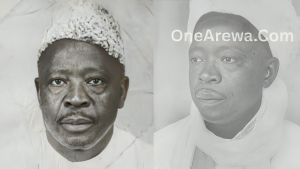
Abubakar Imam Career and Achievements
Alhaji Abubakar Imam began his career as a teacher after completing his studies at the Katsina Training College. His work in the educational sector sparked his interest in journalism and writing.
Imam’s passion for writing and his growing interest in public service led him to explore the field of journalism, particularly in the Hausa language.
His first major professional achievement came in 1934 when he wrote the novel “Ruwan Bagaja”, marking a significant milestone in Hausa literature. This book, based on his own experiences, is considered one of the earliest Hausa novels.
In 1939, Imam, alongside Rupert Moultrie East and others, co-founded the Gaskiya Corporation. This publishing house became the platform for many intellectuals in Northern Nigeria.
He became the first Hausa editor of the Gaskiya Ta Fi Kwabo newspaper, which was the pioneer Hausa-language publication in Northern Nigeria.
Under his leadership, Gaskiya Ta Fi Kwabo became a leading force in promoting Hausa literature, cultural heritage, and political engagement. It played a pivotal role in educating the masses and fostering national consciousness.
Alhaji Imam’s literary contributions significantly shaped Hausa literature. Some of his most notable works include:
Magana Jari Ce (1-3): A collection of short stories, which combined folk tales and social commentary. It became one of the most influential works in Hausa literature.
Ruwan Bagaja: A semi-autobiographical novel, depicting Imam’s personal journey and experiences.
Tafiya Mabudin Ilmi: A reflective work on his time in London, where he shared his insights on education, culture, and knowledge.
Ikon Allah: A series of books co-authored with Rupert East, exploring the intersection of religion and culture in Northern Nigeria.
Imam’s exposure to political affairs through his work at Gaskiya Ta Fi Kwabo and the intellectual circles he was a part of fueled his desire to become involved in politics.
In 1952, he joined the Northern People’s Congress (NPC), which was the leading political party in Northern Nigeria.
Imam was a key member of the NPC’s administrative nucleus, along with notable figures such as Umaru Agaie and Nuhu Bamalli. His involvement in politics helped shape the party’s policies and vision for the Northern region of Nigeria.
Imam was known for his advocacy for social justice, education reform, and the promotion of Hausa language and culture within the broader Nigerian political context.
Imam’s contributions to education and publishing have had a lasting impact on the Hausa literary tradition.
His works were incorporated into curriculums at both secondary schools and universities, ensuring that future generations would continue to benefit from his intellectual legacy.
He helped establish the Northern Nigeria Publishing Company (NNPC), which played a crucial role in publishing works in Hausa and promoting local authors.

Abubakar Imam Publications
1. Magana Jari Ce (Volumes 1–3)
2. Ruwan Bagaja
3. Tafiya Mabudin Ilmi (based on his trip to London)
4. Tarihin Annabi Kammalalle (a biography of Prophet Muhammad, S.A.W)
5. Ikon Allah (Parts I–II) (co-written with Rupert East)
6. Karamin Sani Kukumi (Parts I–II)
7. Tambaya Goma Amsa Goma (A path to Islam)
8. Auren Zobe
9. Six Hausa Plays
10. Contributions to Northern Nigerian Publishing Company and Gaskiya Ta Fi Kwabo
Abubakar Imam Honors and Recognition
1. Order of the British Empire (O.B.E.)
2. Commander of the Order of the Niger (C.O.N.)
3. Honorary Doctorate (LL.D Hon.)
Abubakar Imam Legacy
Alhaji Abubakar Imam’s legacy is pivotal in the development of Hausa literature, journalism, and education in Northern Nigeria. He is a key figure in modern Hausa writing, with works like “Magana Jari Ce” and “Ruwan Bagaja” shaping the literary landscape.
His editorial role at Gaskiya Ta Fi Kwabo helped advance Hausa-language journalism, promoting intellectual discourse on social and political issues.
Imam’s commitment to preserving Hausa culture while balancing traditional values with modernity is reflected in his stories, which emphasize moral integrity and community responsibility.
He strongly advocated for education as a tool for social transformation, inspiring generations of educated Nigerians to use their knowledge for societal progress.
His influence extends to Kannywood, the Hausa film industry, where his narratives continue to inspire filmmakers.
Imam’s works remain widely read, studied, and celebrated, cementing his status as a cultural icon and a pioneering force in the development of Hausa literature and journalism.
FAQs
1. Who was Abubakar Imam?
Abubakar Imam was a prominent Nigerian writer, journalist, and politician, recognized as one of Northern Nigeria’s most influential intellectuals.
He was a pioneer in the promotion of Hausa literature and played a key role in the development of journalism in Northern Nigeria.
2. What are Abubakar Imam’s most famous works?
-
Magana Jari Ce (a collection of short stories)
-
Ruwan Bagaja (a literary work)
-
Ikon Allah
-
Tafiya Mabudin Ilmi
-
Tarihin Annabi Kammalalle (a biography of Prophet Muhammad)
3. What was Abubakar Imam’s role in the development of Hausa literature?
Abubakar Imam was one of the first intellectuals to promote Hausa literature and journalism.
He is credited with making significant contributions to the literary and journalistic culture of Northern Nigeria through works like Magana Jari Ce and his role as the first Hausa editor for Gaskiya Ta Fi Kwabo, the pioneering Hausa-language newspaper.
4. What political impact did Abubakar Imam have in Northern Nigeria?
Imam was an active political figure and played a major role in the formation of the Northern People’s Congress (NPC).
He worked alongside other key figures such as Umaru Agaie and Nuhu Bamalli to shape the political landscape of Northern Nigeria during the 1950s.
5. What educational background did Abubakar Imam have?
Abubakar Imam attended Katsina College and later studied at the University of London’s Institute of Education. His education played a significant role in shaping his intellectual and literary contributions.
6. How did Abubakar Imam contribute to journalism in Northern Nigeria?
Imam was the first Hausa editor of Gaskiya Ta Fi Kwabo, which was a major newspaper in Northern Nigeria.
He also co-founded Gaskiya Corporation, a publishing house that became an important platform for Northern Nigerian intellectuals and writers.
7. What was Abubakar Imam’s connection to the Northern People’s Congress (NPC)?
Abubakar Imam was one of the founding members of the Northern People’s Congress (NPC) in 1952. He was a key administrative figure in the party, alongside other important leaders like Umaru Agaie and Nuhu Bamalli.
8. What awards did Abubakar Imam receive in recognition of his contributions?
Abubakar Imam was honored with several prestigious awards, including the O.B.E. (Order of the British Empire) and the C.O.N. (Commander of the Order of the Niger), recognizing his invaluable contributions to education, literature, and Nigerian society.
9. What is Abubakar Imam’s legacy?
Abubakar Imam’s legacy includes his pioneering role in promoting Hausa literature and culture, his significant impact on Northern Nigerian journalism, and his political influence.
He is remembered as an intellectual icon and one of the key figures who shaped the socio-political and cultural landscape of Northern Nigeria.
10. Why is Abubakar Imam considered a pioneer in Northern Nigeria?
Imam is considered a pioneer because he was one of the first individuals to champion the cause of Hausa intellectualism, literature, and journalism at a time when Northern Nigeria was undergoing significant political and social changes.
His contributions laid the foundation for the development of Hausa literary traditions and political discourse in the region.
Check Out: Sir Abubakar Tafawa Balewa: Nigeria’s First Prime Minister (1912-1966)
In conclusion
Abubakar Imam (1911–1981) was a towering figure in the intellectual, literary, and political landscape of Northern Nigeria.
As a pioneering writer, journalist, and politician, Imam’s contributions helped shape the development of Hausa literature and Northern Nigerian journalism.
His works, including Magana Jari Ce and Ruwan Bagaja, remain fundamental to the literary canon of the region, while his leadership in the Northern People’s Congress (NPC) and role as the first Hausa editor of Gaskiya Ta Fi Kwabo marked him as a key figure in the political and social movements of his time.
Abubakar Imam’s legacy endures not only through his literary and political accomplishments but also through his impact on the intellectual culture of Northern Nigeria.
His dedication to preserving and promoting the Hausa language and culture, along with his unwavering commitment to education and social progress, has solidified his place as one of the region’s most influential figures.
His influence continues to inspire generations of writers, journalists, and political leaders.
